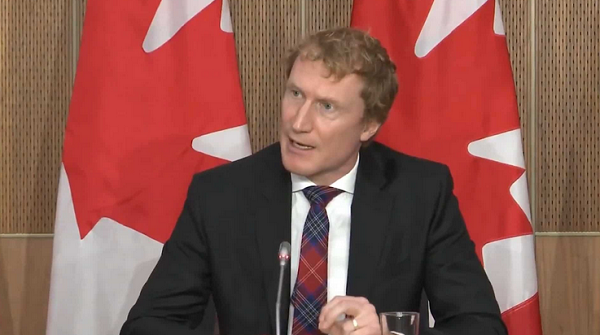‘People should come here to educate themselves and take the skills back to their countries’: Canada’s immigration minister
Canada is reviewing how many long-term visas it grants to foreign students, underscoring the government’s desire to slow immigration and population growth.
Federal and provincial officials have been discussing how to match labor market demand with international students, Immigration Minister Marc Miller said in a phone interview. Although Canada has for years used universities and colleges to bring in educated, working-age immigrants, study visas shouldn’t imply a guarantee of future residency or citizenship, he said.
“That should never be the promise. People should be coming here to educate themselves and perhaps go home and bring those skills back to their country,” he said. “That hasn’t always been the recent case.”
Prime Minister Justin Trudeau has faced mounting pressure over the rising cost of living, intense competition for scarce housing and higher unemployment. Earlier this year, Canada imposed a new cap on the number of international student visas it issues — it’s projecting fewer than 300,000 new student permits this year, down from about 437,000 last year.
Now officials are scrutinizing who among that pool of students should stay once they’re done with their studies.
Canada needs to do a better job making sure jobs for international students are commensurate with the studies they’ve undertaken, Miller said. There’s a conversation about reflecting labor needs and “how we match post-graduate work permits to an increasingly contracting shortage of labor” in provinces.
“The logic for having uncapped or uncontrolled draws from abroad is no longer there.”
The number of people in Canada with those visas has grown rapidly: there were 132,000 new PGWP holders in the country in 2022, up 78 per cent from four years earlier, according to government data.
Changes to immigration policy will need discussion among governments and business, Miller said. Trudeau’s administration is also looking hard at how a separate program that allows companies to apply to bring in temporary foreign workers has been “used and abused,” Miller said, and he has committed to reducing the proportion of temporary residents to five per cent of the population, from nearly seven per cent.
Foreign workers in Prince Edward Island have protested in recent weeks — with some even going on hunger strikes — after the provincial government slashed the number of permanent residency nominations for sales and service.
“Canada is now being seen as less welcoming as it has been before” for students, Miller said. But the update of that, he said, is that a study visa “is less and less being seen as a cheap way to attain permanent residency or entry into Canada, and more of a qualitative proposition — which is where we want to see it go back, to its original intent.”
However, after attending a roundtable with local media in Surrey, British Columbia, which has a large population of immigrants from South Asia, Miller said he’s also concerned by signs of racism in Canada.
“We’ve built a very important consensus around immigration in Canada, but that’s being chipped away at.”
With assistance from Randy Thanthong-Knight
This article was first reported by BNN Bloomberg













